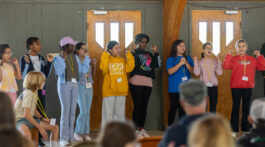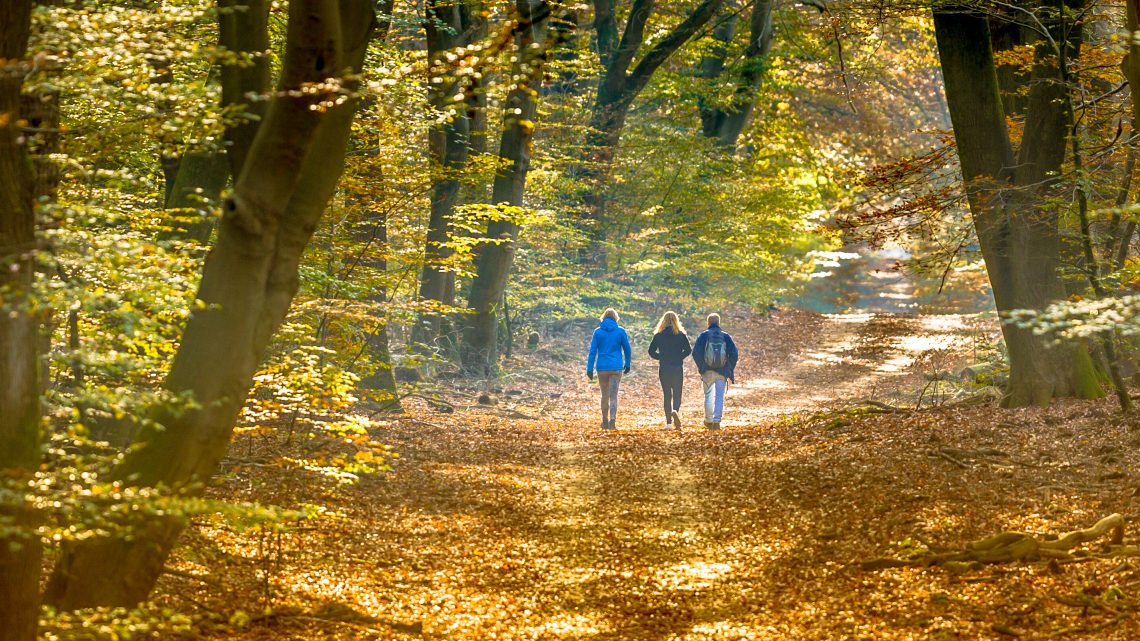“Nature calms us, reducing feelings of stress, anxiety and anger,” says Sandi Schwartz, author of Finding Ecohappiness: Fun Nature Activities to Help Your Kids Feel Happier and Calmer. “It also improves focus and attention, as well as reduces blood pressure, heart rate, muscle tension and the production of stress hormones. It even makes us friendlier and more apt to reach out to others in our community.”
Wow! Those are some wonderful healing powers nature offers us! When was the last time you spent some time in nature? Camping, hiking or sightseeing (without your smartphone!)?
I loved working as a director at one of our camps. I witnessed young people from the city—who had never been in nature—become overwhelmed with joy as they walked around the lake, rode horses and earned honors in nature. This is why I love our camps! I hope you are sending your young people to them each summer. Better yet, sign up for family camp and experience nature together.
When you see firsthand the incredible transformation spending time in nature can have on a life, one can also begin to understand at a deeper level why the Lord made us stewards of our planet. We are supposed to be the caretakers of God’s amazing creative handiwork. We can show respect and appreciation right now for God’s work of creation by valuing the natural world around us that He has made and continues to sustain by His life-giving power.
We know there is healing power in being immersed in nature. Gardens and natural landscapes have long been recognized for their therapeutic and restorative value to our health. According to Winston J. Craig, Phd, RD and professor emeritus at Andrews University in Michigan, more than 100 studies confirm that spending time in nature is beneficial for reducing one’s stress, both physical and emotional. In addition, “we observe that nature is a healing balm for depression and mental disorders,” says Craig.
Some universities now offer horticultural therapy degrees where therapists design gardens that assist people with physical, emotional or mental disabilities to develop coping methods that enhance their lives. “These programs recognize the therapeutic benefits of gardening for people with chronic illnesses,” explains Craig. “People who learn the names of plants are more likely to value them. Giving a name to something is a way of making the plant a part of your community. As a result, we see a more responsible stewardship of nature.”
This type of activity is a strong counter to nature deficit disorders in both children and adults. In fact, NBC News reported that in recent years physicians nationwide have started writing actual prescriptions for their patients to spend more time outdoors in local parks and green spaces. These are often written recommendations in lieu of prescribing antidepressants or anti-anxiety medications. There’s even a nationwide initiative dedicated to the cause: ParkRx.org.
Protecting what we love
But can we really make a meaningful difference in global environmental crises—either as individuals or as a united church body? And if so, how?
Every great movement begins with one or more individuals who are passionate about something they believe is truly important. They are willing to think about it and dedicate time and energy to it. As Christian, we are dedicated to praying about what we should do and how we should use our resources.
God’s second book should not be ignored. Just as there is power in reading, studying and memorizing Scripture, doing the same with God’s second book will yield amazing changes in our lives. So, please, don’t just read this short article without action; plan today how you are going to spend more time in nature, walking hand in hand with your Creator.
Here is one final comment to help entice you to reap the marvelous benefits of spending time in God’s creation:
“God has surrounded us with nature’s beautiful scenery to attract and interest the mind. It is His design that we should associate the glories of nature with His character. If we faithfully study the book of nature, we shall find it a fruitful source for contemplating the infinite love and power of God” (Ellen White, My Life Today, 294).










